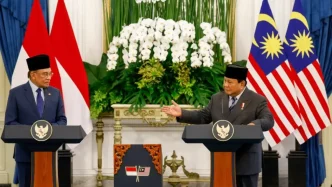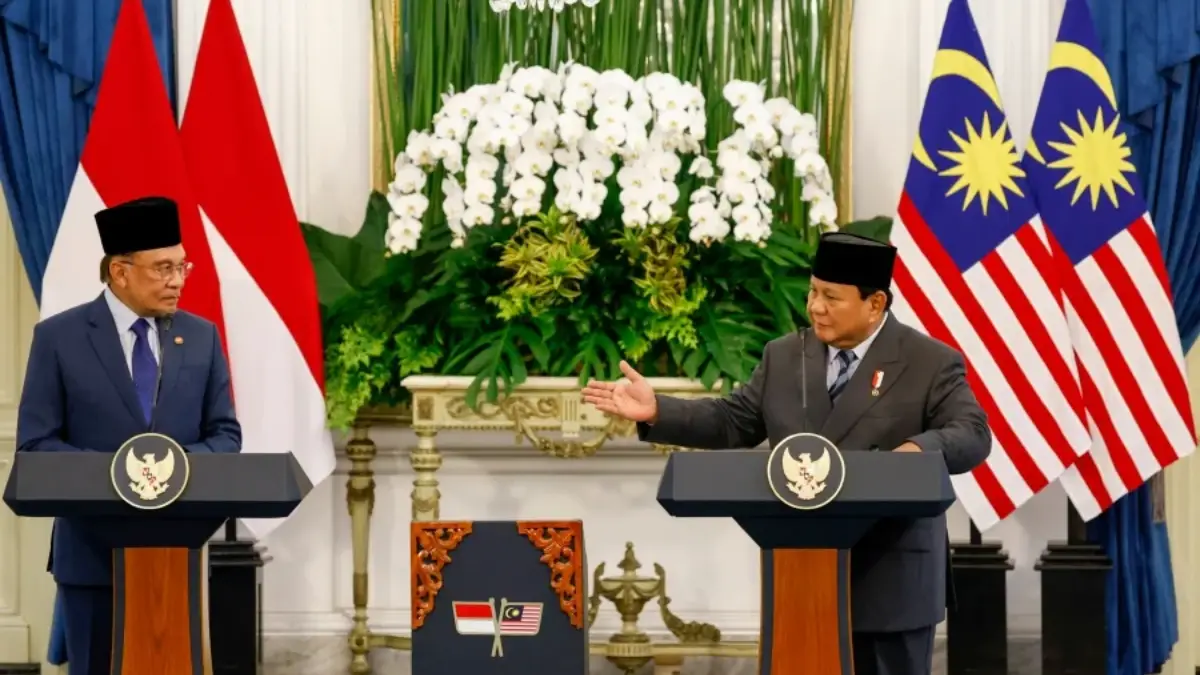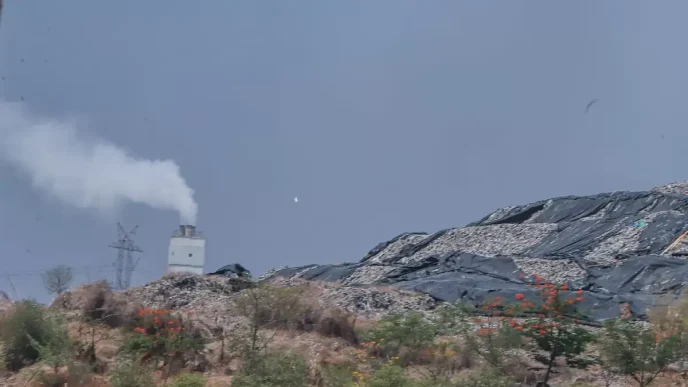In a significant step toward deepening bilateral relations, Malaysia and Indonesia have finalized several pivotal agreements during the 13th Annual Leaders’ Consultation held in Jakarta. The talks, which took place on July 29, 2025, at the Presidential Palace, saw Malaysian Prime Minister Anwar Ibrahim and Indonesian President Prabowo Subianto addressing critical issues ranging from border disputes to economic partnerships. The outcomes of this meeting underscore a shared commitment to regional stability and prosperity, setting ambitious targets for trade and investment while navigating complex maritime boundary concerns with a spirit of mutual respect.
Key Agreements and Economic Ambitions
The consultation resulted in the signing of four memoranda of understanding (MoUs), covering border issues around Pulau Sebatik, health, information and communication, and Internet governance. These agreements reflect a broad spectrum of cooperation, aiming to address both immediate practical concerns and long-term strategic goals. At a press conference following the talks, Prime Minister Anwar highlighted the establishment of a US$30 billion (RM127 billion) bilateral trade target, signaling an intent to significantly boost economic ties between the two nations. This figure, equivalent to approximately US$30 billion at current exchange rates, underscores the scale of ambition driving this partnership.
Beyond trade, discussions also focused on investment opportunities, particularly in Indonesia’s new capital project, Ibu Kota Nusantara. Malaysia expressed keen interest in contributing to this ambitious urban development, with Anwar emphasizing his country’s desire to be a reliable partner in fostering regional prosperity. Additionally, cross-border access facilities in Entikong, a key transit point between the two nations, were prioritized to facilitate smoother movement of goods and people, further enhancing economic connectivity.
Renewable energy emerged as another cornerstone of the talks, with Malaysia positioning Sarawak as a potential export hub for sustainable energy solutions. This aligns with broader regional goals to transition toward greener economies, with both leaders recognizing the importance of collaboration in infrastructure, housing, education, and technology sectors. Such initiatives not only promise economic dividends but also aim to cement Malaysia and Indonesia as leaders in Southeast Asia’s push for sustainable development.
Navigating Maritime Boundaries with Diplomacy
One of the more intricate issues addressed during the consultation was the long-standing maritime boundary dispute in the Sulawesi Sea, involving overlapping claims between East Kalimantan in Indonesia and southeastern Sabah in Malaysia. This contention dates back to 1979 when Malaysia published a map delineating its maritime boundaries, sparking disagreements that have persisted for decades. During the talks, Anwar stressed that discussions were grounded in international law, specifically referencing the United Nations Convention on the Law of the Sea (UNCLOS), and aimed at safeguarding mutual interests without escalating tensions.
“Our spirit is to safeguard each other’s interests while respecting the boundaries established in accordance with international law. We will continue with that spirit so that there is no tension” Anwar stated at the press conference on July 29, 2025. This measured approach was further echoed during a dialogue session with the Association of Malaysian-Indonesian Journalists, where he reiterated Malaysia’s commitment to diplomatic negotiations over aggressive posturing. “We follow the legal path. We do not take an aggressive stance. Both sides must avoid encroaching into each other’s territory” he added.
According to a written reply from the Malaysian Foreign Ministry dated July 22, 2025, as reported on the Malaysian Parliament portal, the ND6 and ND7 oil exploration blocks in the Sulawesi Sea are considered part of Malaysian sovereign territory under international legal principles. This stance is bolstered by precedents such as the 2002 ruling by the International Court of Justice on nearby territorial disputes, which Malaysia cites as a framework for its claims. Despite the complexity of the issue, both nations agreed to enhance cooperation through the Trilateral Cooperative Arrangement framework, a mechanism designed to maintain peace and security in the Sulu Sea and Sulawesi Sea regions.
Historical Context and Regional Implications
The maritime dispute in the Sulawesi Sea is emblematic of broader challenges facing Southeast Asian nations as they balance national interests with the need for regional harmony. Malaysia and Indonesia, as key members of the Association of Southeast Asian Nations (ASEAN), have often served as models for diplomatic engagement within the bloc. Their ability to address contentious issues like maritime boundaries through dialogue rather than confrontation sets a precedent for other regional disputes, such as those in the South China Sea involving multiple claimants.
Historically, the relationship between Malaysia and Indonesia has been characterized by both cooperation and occasional friction. The two nations share deep cultural and linguistic ties, yet territorial and economic disagreements have tested their partnership over the years. The annual consultation mechanism, now in its 13th iteration, has become a vital platform for resolving such issues, fostering trust, and aligning strategic objectives. The latest agreements on border management, particularly around Pulau Sebatik—an island split between the two countries—demonstrate a pragmatic approach to shared challenges, ensuring that local communities on both sides benefit from clearer delineations and cooperative governance.
Economically, the US$30 billion trade target is not merely a number but a reflection of the potential for mutual growth. Malaysia’s investments in Indonesia, especially in strategic sectors like renewable energy, signal a shift toward future-focused collaboration. Sarawak’s role as a potential energy hub could position Malaysia as a key supplier of sustainable power to Indonesia, supporting the latter’s ambitious infrastructure projects like Ibu Kota Nusantara. This new capital, intended to replace Jakarta as the administrative center, represents a massive undertaking that requires significant foreign investment and expertise—areas where Malaysia appears eager to contribute.
Security and Stability in Shared Waters
Beyond economics and territorial concerns, the commitment to joint security measures in the Sulu Sea and Sulawesi Sea highlights the broader geopolitical stakes at play. These waters are critical for regional trade routes, with piracy and smuggling posing persistent threats to maritime safety. The Trilateral Cooperative Arrangement, which also involves the Philippines in certain contexts, has been instrumental in curbing such activities through coordinated patrols and intelligence sharing. By reaffirming their dedication to this framework, Malaysia and Indonesia send a strong message about their resolve to maintain stability in a region often fraught with security challenges.
This focus on maritime security also ties into broader ASEAN efforts to project unity in the face of external pressures. While not explicitly mentioned during the consultation, the shadow of larger geopolitical tensions—such as those involving China’s claims in the South China Sea—looms over regional discussions. By strengthening bilateral mechanisms like the annual consultation and trilateral security arrangements, Malaysia and Indonesia contribute to a more cohesive ASEAN stance, potentially enhancing the bloc’s negotiating power on the international stage.
Looking Ahead: Challenges and Opportunities
As Malaysia and Indonesia move forward from the 13th Annual Consultation, the agreements reached in Jakarta provide a robust foundation for enhanced cooperation. However, the path ahead is not without hurdles. The maritime boundary issue in the Sulawesi Sea, while addressed diplomatically, remains unresolved in practical terms, requiring ongoing negotiations and possibly third-party mediation under international frameworks like UNCLOS. Both nations will need to maintain their commitment to dialogue to prevent misunderstandings from escalating into conflict, particularly given the economic potential of disputed areas like the ND6 and ND7 oil blocks.
Economically, achieving the US$30 billion trade target will demand sustained policy alignment, reduction of bureaucratic barriers, and private sector engagement. Investments in Ibu Kota Nusantara and renewable energy projects offer promising avenues for collaboration, but they also require careful management to ensure mutual benefits. Malaysia’s role as a development partner, as articulated by Anwar, hinges on trust and transparency—qualities that must be nurtured through consistent follow-through on commitments made during the consultation.
On the security front, the Trilateral Cooperative Arrangement will need to adapt to evolving threats in the Sulu and Sulawesi Seas. Enhanced cooperation in intelligence sharing, joint exercises, and capacity building for local maritime forces could further solidify peace in these critical waters. For local communities, especially those in border areas like Entikong and Pulau Sebatik, the tangible benefits of smoother access and clearer jurisdictional lines could improve daily life, fostering goodwill between the two nations at a grassroots level.
As these initiatives unfold, the success of the Malaysia-Indonesia partnership will likely serve as a barometer for regional cooperation within ASEAN. With both leaders expressing a clear intent to prioritize mutual interests over conflict, the outcomes of this consultation offer hope for a more integrated and prosperous Southeast Asia. Yet, the true test lies in implementation—how effectively can these agreements translate into actionable progress, and what impact will they have on the lives of citizens across both countries? Only time will tell, but for now, the spirit of collaboration shines brightly.
















